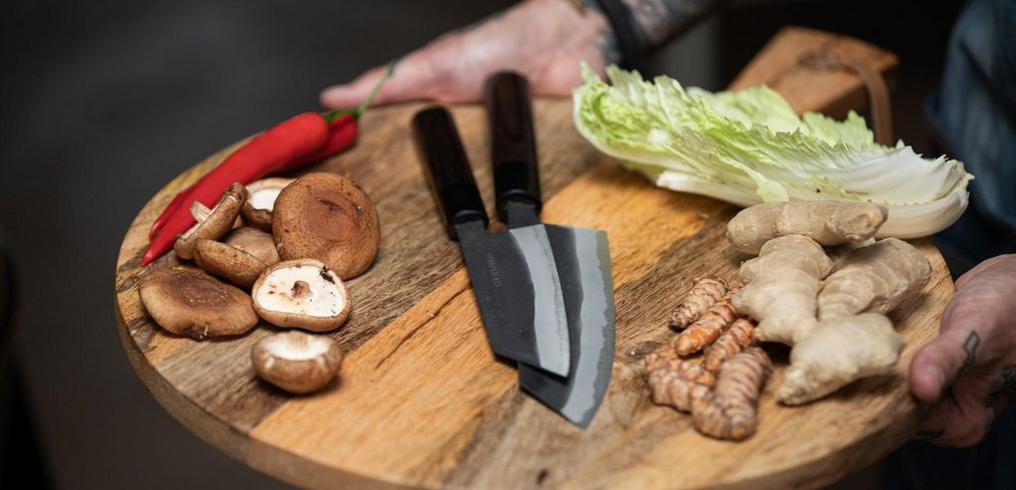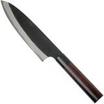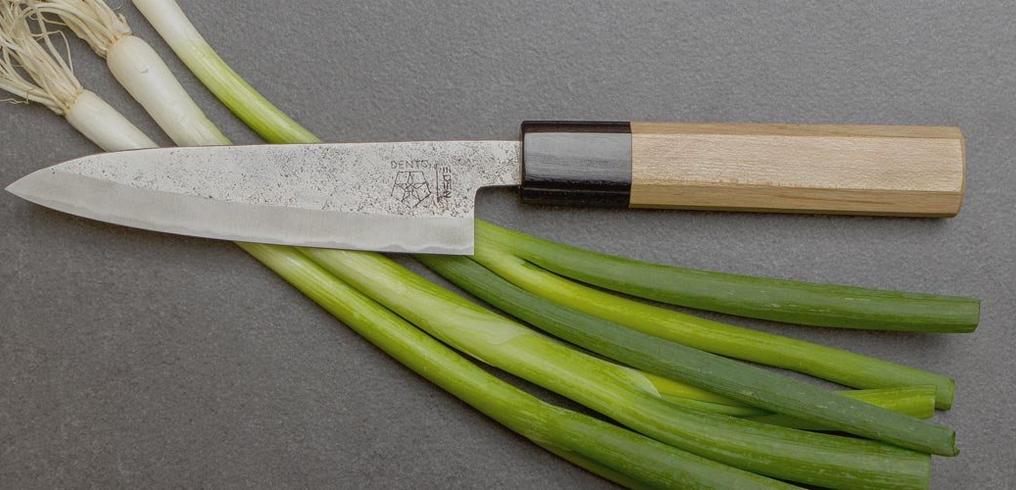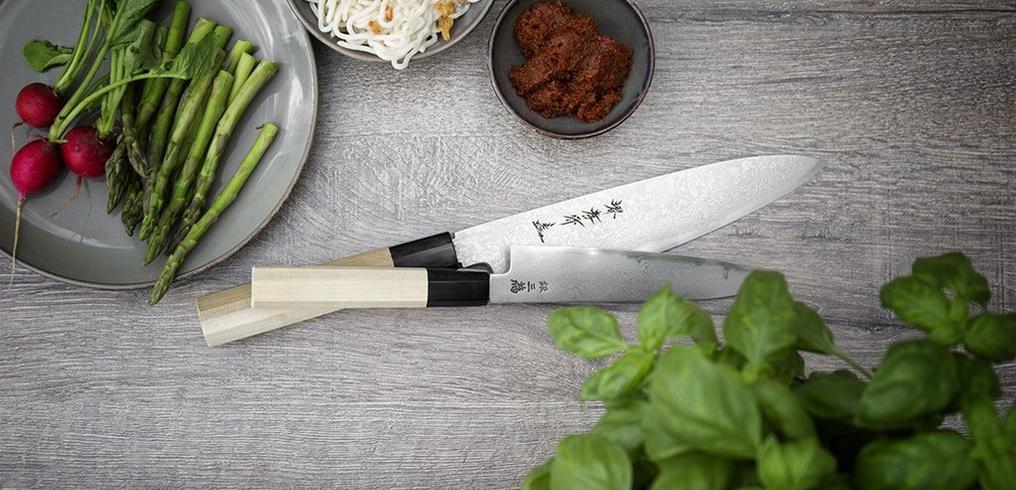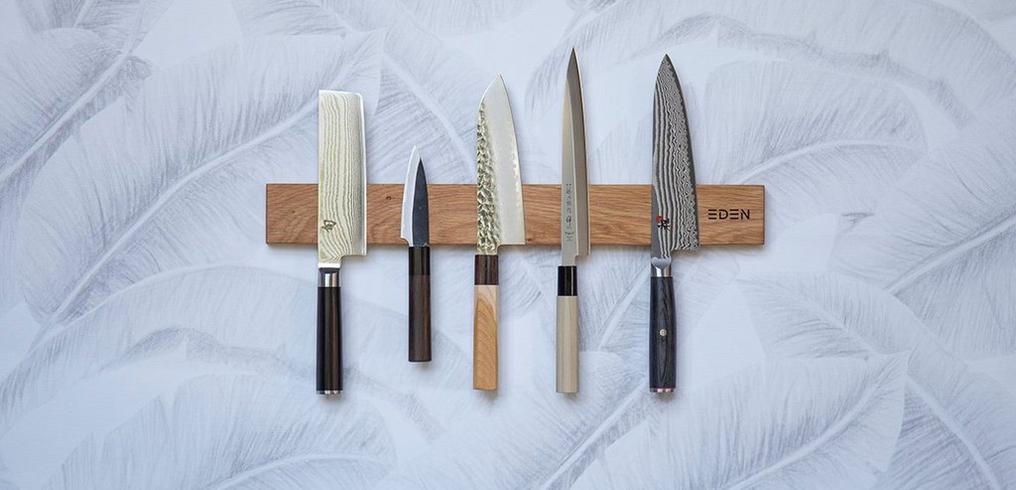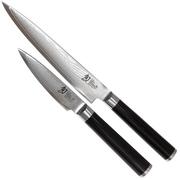
Japanese knives: for the best results in your kitchen
Chefs looking to buy Japanese kitchen knives are really just looking for the sharpest kitchen knives. A Japanese kitchen knife and a European chef's knife are very different. For example, Japanese knives are generally sharper and have a thinner blade. In addition, the sharpening angle is smaller. This means you'll experience less cutting resistance, making it easier to slice through your ingredients! At Knivesandtools, you will find the best products from Japanese knife brands such as Kai, Eden, Miyabi, Tojiro and Sakai Takayuki. Perfect for professional use and amateur chefs.
Looking for a Japanese kitchen knife?
Discover the perfect one for your culinary needs!
















































How do you choose the best Japanese kitchen knife?
First of all, because there are many types of Japanese knives, you'll need to decide which products you usually cut. Are you looking for a general-purpose kitchen knife? Then you should have a look at the gyutos or a santoku knife. Are you looking for a knife that will allow you to cut vegetables with extreme precision? Then a nakiri knife is the kitchen knife for you! For smaller cutting work, you'll quickly end up with a shotoh or petty knife. Fish lovers will appreciate the ultimate convenience of a yanagiba or deba. And real carnivores will choose a sujihiki. Or, choose a Japanese knife set to get a complete set in one go!
Japanese kitchen knives made from stainless steel
What kind of steel suits your needs: VG10, AUS10 or a different Japanese stainless steel? You can also choose to buy damascus knives for an extra elegant look.
Carbon-steel blade
Are you a fan of Japanese knives in the traditional style? There are many knives with made from Japanese steel. Make sure to check out carbon steel types like Aogami Blue Paper steel or Shirogami White Paper steel. These kinds of steel are not stainless, but they are harder than stainless steel, and you can achieve a higher level of sharpness. Carbon steel takes a little more maintenance than stainless steel. If you leave these knives lying around on a stack of dishes, you are guaranteed to create discolouration, if not corrosion. Patina, however, is normal. Make sure to wash carbon steel knives directly after use to maintain their beauty. When properly taken care of, a carbon steel kitchen knife will give you a lifetime of cooking pleasure. And admit it: patina on a kitchen knife has its charm, right?
